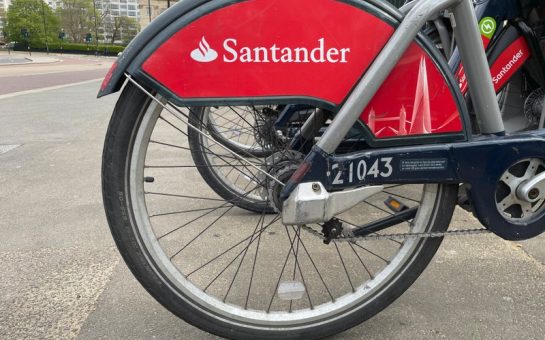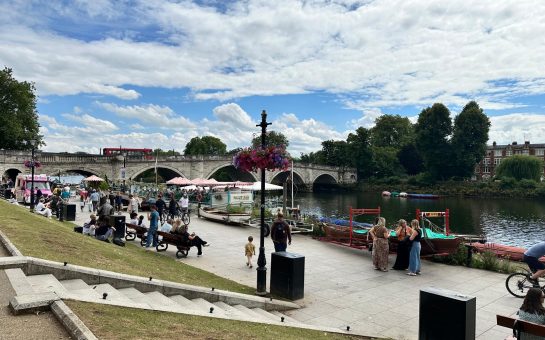Ensuring electrical safety is paramount for all dwellings across South West London.
The necessity of acquiring Electrical Installation Condition Reports (EICR) cannot be overstated, as they verify adherence to local codes and safeguard resident’s well-being.
Regular checks significantly advance both personal protection and community welfare.
Property owners and landlords must emphasise these assessments since they cultivate a safer living environment, satisfy statutory mandates, and reassure tenants and homeowners.
What Is an EICR Certificate and Why Does It Matter?
A formal EICR certificate assesses a property’s wiring installations for potential risks or inadequacies, validating conformity with the British Standard for Electrical Installations (BS 7671).
For landlords and homeowners, possessing a valid certificate signifies more than a bureaucratic obligation but a crucial safeguard for tenants and the prevention of fires or electrocutions triggered by deficiencies.
For example, ageing wires uncovered by an EICR at a South West London dwelling potentially endangered lives.
Neglecting mandatory EICR services in London could result in expensive penalties or legal responsibilities in the case of accidents.
Non-compliance also leaves landlords vulnerable to liability claims if incidents arise from unaddressed safety issues.
This underscores the practical and protective importance of EICRs for tenants’ security and a landlord’s economic interests.
EICR Regulations Essential for South West London Residents
In London, strict EICR laws apply, especially regarding rental properties.
Landlords must ensure that electrical systems undergo inspection every five years, at the minimum.
This ensures the property meets the latest safety standards.
For example, neglecting this requirement and a tenant suffering an electrical injury due to defective wiring could result in hefty fines for the landlord and compensating costs.
Consistent checks allow landlords to identify issues before escalation, protecting investments and guaranteeing tenant safety.
Furthermore, understanding local regulations and staying aware of changes is crucial for South West London landlords and homeowners to satisfy current safety standards and avoid penalties.
Local councils often offer resources and updates regarding EICR requirements, and landlords should proactively seek to remain informed.
Frequent Electrical Issues Seen in Aged South West London Homes
Older South West London properties frequently experience a range of electrical challenges.
Numerous homes built prior to the 1980s may still have outdated wiring systems ill-equipped to handle modern electrical loads.
During EICR inspections, several commonly detected problems include:
- Defective Wiring: Deteriorated or damaged cables can pose serious hazards.
- Overburdened Circuits: Excessive circuit demand risks overheating, creating possible fire dangers.
- Improperly Installed Sockets: Misconfigured outlets can create dangerous conditions for users and appliances.
An inspector’s routine evaluation identifies wiring flaws that may lead to an electrical fire or severe hazards.
This proactive maintenance is vital for safeguarding both residents and facilities from potential calamity.
For example, a landlord assessment might uncover numerous extension cords plugged within one receptacle, overtaxing its capacity.
The specialist suggested improvements to bring the system up to code and prevent a short or an inferno crisis from endangering lives and property.
Compliance protects all.
The Process of Obtaining an EICR Certificate in London
Acquiring an EICR certificate is a straightforward process which owners of property can easily navigate.
Here is a step-by-step guide to help you through the process:
- Appointments Schedule: Owners of property can arrange an inspection EICR by contacting a qualified electrician specialising in services EICR in London.
- Choose Credible an Electrician: When selecting an electrician, ensure they registered are with a body governing recognised, such as the National Inspection Council for Electrical Installation Contracting (NICEIC) or the Electrical Contractors’ Association (ECA). This guarantees their qualifications and credibility.
- Inspection Overview: The inspection involves a comprehensive examination of the electrical installations. Key components of the inspection include:
- Visual Inspection: The electrician will conduct a thorough visual assessment of the electrical systems.
- Testing Functional: They will test circuit breakers to verify proper functioning. This step is crucial in ensuring that the breakers respond correctly during electrical faults, preventing potential hazards such as electrical fires or shocks.
- Condition Wiring: The electrician will look for signs of wear and tear in the wiring to identify potential hazards. For example, electrical appliances connected to outdated or damaged wiring could pose safety risks, so any issues are highlighted during this stage.
- Receive a Detailed Report: After the inspection, you will receive a comprehensive outlining report of any remedial actions and the timeline for obtaining the official EICR certificate.
- Time Allocation: It is advisable to allocate approximately 1 to 4 hours for the inspection, depending on the size and condition of the property, so that both the property owner and electrician can complete the inspection thoroughly without disruptions.
The Costs of EICR Services in London
The expenses associated with EICR services in London can vary significantly due to multiple factors, including the property type and size.
Homeowners can generally expect a reasonable fee for a thorough inspection.
For instance, a small flat may incur a lower cost compared to a larger family home.
While some may perceive the cost of an EICR as an additional expense, it should be viewed in light of the potential costs associated with electrical failures, which can be significantly higher.
Investing in regular EICR inspections is a proactive measure that can protect properties and budgets long term by preventing costly electrical issues down the road.
Grasping the potential expenditures of neglecting an inspection—like penalties, elevated insurance, and repairs—highlights the significance of compliance.
While obtaining certification fulfils legal duties, it also bolsters public safety and credibility.
Following Safety Standards Through EICR Assessments
Attaining an up-to-date certificate satisfies regulations and enhances neighbourhood security.
Adhering to local codes and legal requirements in South West London is essential for owners and landlords to sidestep penalties and maintain property value.
Some notable advantages and actions to review:
Benefits of Compliance:
- Meeting Laws: A valid EICR confirms that all electrical safety rules are met.
- Improved Reputation: Possessing a current EICR can boost a landlord’s trustworthiness among tenants.
- Higher Occupancy: Compliance may lead to greater tenant retention and full properties, as tenants feel safer in inspected homes.
Maintaining Compliance:
- Stay Aware: Regularly confirm any changes to standards to ensure the following of present laws.
- Utilise Resources: Councils and government sites often offer beneficial updates and resources for proprietors regarding demands.
- Partner with Experts: Work with experienced electricians who can offer counsel on maintaining compliance and suggest systems upgrades to support safety and adherence to regulations.
The Role of Certificates in Community Safety
Prioritising electrical safety within individual properties directly lends itself to improving the overall safety of the community at large.
When landlords and property owners consistently schedule EICR inspections, they play an integral part in cultivating safer neighbourhoods.
For instance, if multiple rental properties in a given area routinely undergo inspection and maintenance, the surrounding community reaps the benefits of reduced incidents of electrical fires and other hazards through proactive prevention.
Local authorities and electricians champion initiatives focused on bolstering community-wide safety.
They may organise awareness campaigns to educate property owners about the significance of electrical safety inspections and the role of EICR certificates.
By making electrical safety a shared priority across properties, risks can be mitigated, essentially elevating the standard of living for all residents in South West London through collaborative diligence.
Image credit: Luca Ercolani Via Unsplash





